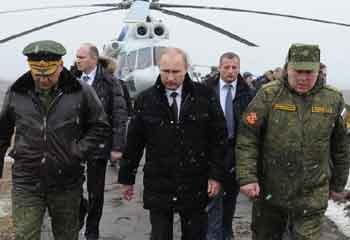 INVC NEWS
INVC NEWS
New Delhi,
The Vice President of India Shri M. Hamid Ansari has said that Education is the most important instrument for social, economic and political transformation. A well educated population, equipped with the relevant knowledge, attitudes and skills is essential for economic and social development in this century. Addressing at the “Platinum Jubilee Celebrations of the Sikh Educational Society (SES)” in Chandigarh today, he has said that Education is the most potent tool for socioeconomic mobility and a key instrument for building an equitable and just society. Education provides skills and competencies for economic well-being. Education strengthens democracy by imparting to citizens the tools needed to fully participate in the governance process. Education also acts as an integrative force in society, imparting values that foster social cohesion and national identity.
He said that we have made significant progress in the field of education since independence. Literacy levels have gone up from around 11% in 1951 to around 74% in 2011. Enrolment of Children at primary stage level has reached near universal levels; as youth and adult literacy have reached 91% and 74% respectively. Equity gap and gender gap in education have also narrowed down. Today, India has the third largest higher education system in the world. We have around 652 universities and university level institutes that impart higher and technical education. They also provide affiliation to more than 33,000 colleges and institutes.
The Vice President said that in recent years, the massive expansion in enrolment in higher education in the country has resulted in unbearable burden being put on the physical and pedagogic infrastructure of colleges and universities. This is manifested in overcrowded classrooms and distortion of desirable student-teacher ratios, overall shortage of teaching and tutorial space, overloading of laboratory and library facilities, and often a lowering of quality of teaching. Shortage of teachers, and failures to fill in time, vacant faculty positions, has added to it. Outdated syllabi and sub-standard course content aggravate the situation.
He said that in recent years, private sector initiatives have contributed to the growth of higher education. Today, around 60% of total enrolments in higher education are in private institutions. While some of them excel in their chosen areas, there are legitimate concerns about many of these institutions being substandard, exploitative and suffering from the general shortcomings in higher education mentioned earlier. These institutions require an effective regulatory mechanism for quality assessment and regulation. Given the high importance of education in national development, we have to keep our focus on the expansion of education, on significantly improving the quality of education imparted and on ensuring that educational opportunities are available to all segments of the society. This has to be a collective effort of the government, the private sector and the civil society.














